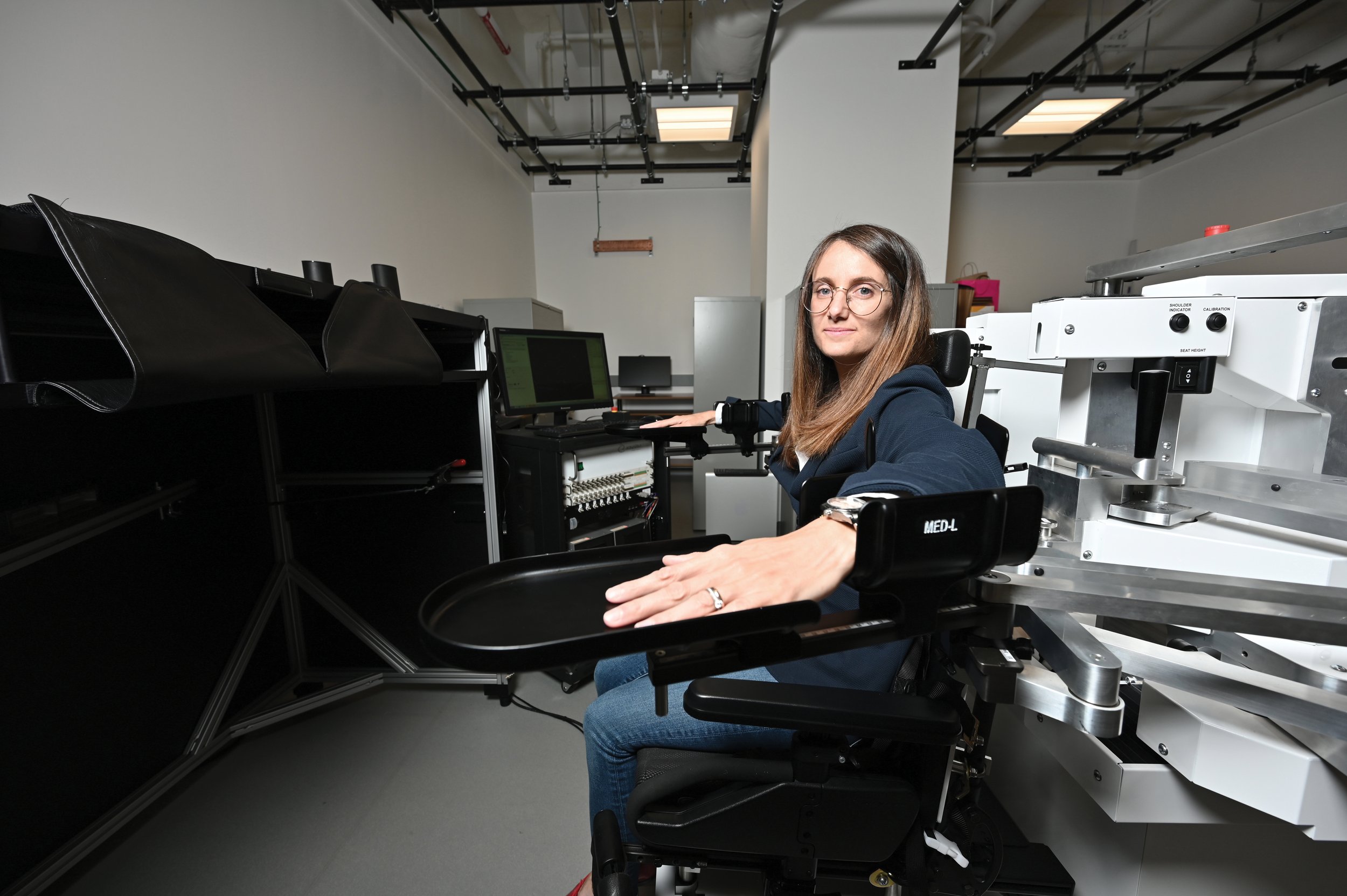Spinal Cord Stimulator Can Return Post-stroke Mobility
Elvira Pirondini
According to cardiologists, 75% of people who have a stroke are left with some loss of motor control function in an arm and a hand. Elvira Pirondini, assistant professor of physical medicine and rehabilitation in the School of Medicine, notes that the aftermath of stroke can be detrimental not only to a person’s physical health, but also to their social and professional lives because it impedes simple daily activities, such as writing, eating, and getting dressed.
Pirondini co-authored a study that revealed a striking new use for an existing technology: A spinal cord stimulator can return some lost mobility to people suffering from stroke paralysis. For those simple tasks, the subjects didn’t even need training. “From day one, the subject could already attempt some movement,” she says.

